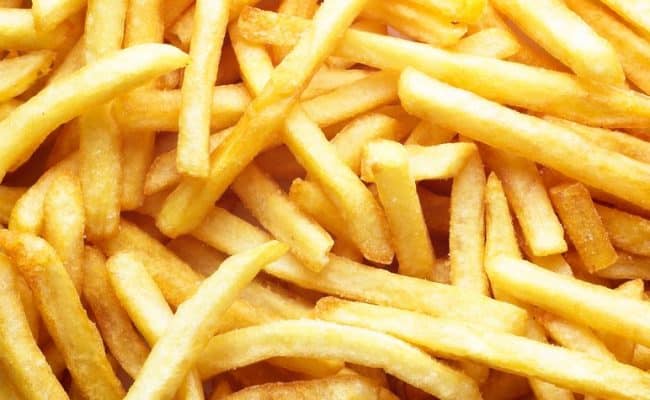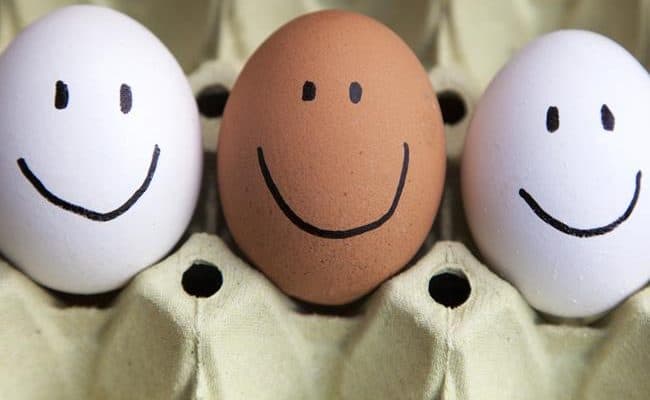
A common belief in the dieting world is that eating carbohydrates at night or in the evening can cause us to gain weight and is therefore unhealthy. However, there is no scientific evidence to support this theory and nothing to suggest that eating carbohydrate foods later in the day has any different effect on weight management than eating them at any other time of day.
It’s a myth…
This myth is based on the principle that when we eat carbohydrates at night, we are taking in energy which we then do not burn off as we go to bed and have a long period of inactivity. The theory is that this extra energy is stored as fat since we do not burn the calories off.
Whilst this is likely to be the case if we are eating too many calories, more than we are burning off, there is no evidence that this is in any way dependent on the time of day. Our bodies are finely tuned machines, designed to cope with the digestion of food no matter what the time of day.
Whether it is first thing in the morning or last thing at night, our bodies will process, digest and store carbohydrates in the same way. Therefore it is the overall balance of the calories we consume and those we burn that affects our weight.
Will eating carbs at night cause weight gain?
No. Eating too many calories will cause weight gain. Maintaining weight is a delicate balance between the calories we eat and the calories we burn. If these are in balance we stay the same weight, however if we are consuming more energy than we are burning we gain weight.
Conversely, if we increase our physical activity levels and thus the calories we are burning so that we are in a negative energy balance, (burning more energy than we are consuming), we lose weight. (See also: How many calories should I eat per day)
When people avoid carbohydrates at night due to the believe that eating them will cause weight gain, they are often reducing their overall calorie and food intake by eliminating foods. For example, instead of eating a steak, vegetables and potatoes, they may simply eliminate the potato but leave the remainder of the meal unchanged. In this way calorie consumption is reduced, which may result in weight loss.
The key to weight loss is an overall calorie intake that is less than the calories you are burning on a daily basis.
Scientific evidence
There is no scientific weight loss to support the theory that eating carbs at night causes weight gain. In fact there is even evidence to suggest the opposite. A 2006 study where participants were randomly assigned to a low calorie diet with the majority of carbohydrates eaten at dinner, or a control low calorie diet group with carbohydrates eaten throughout the day, found that there was greater weight loss, reduction in waist circumference and body fat levels with those participants assigned to the carbohydrate at night group.
Reported hunger scores were also lower in the experimental group, and hormones associated with hunger control were also modified, indicating that the group eating carbohydrates in the evening also experienced less hunger. Improvements in fasting glucose, daily insulin concentrations and cholesterol levels were also seen in the experimental group.
Whilst there has been some research suggesting that a low carbohydrate, high protein diet is most effective for weight loss, it is often found that people following these types of diets ended up consuming less calories overall which is likely to have contributed to their weight loss.
A recent study published in the Journal of the American Dietetic Association found that a low carb diet was associated with a higher risk of being obese, whilst those that ate about half their calories in the form of carbohydrates had the lowest risk. This has led to the recommendation that a low fat diet rich in whole grains is the best for health and weight management.
Choosing the best carbs
Whilst the time of day when we eat carbs does not play a role in weight gain, the type of carbohydrates we eat does. Carbohydrates based on whole grains and processed as little as possible are the best choice for weight management, bowel health and controlled blood sugar levels. These types of carbohydrates also keep you fuller for longer due to higher fibre content.
GI, or glycemic index, has also been indicated as an important factor when choosing the healthiest carbohydrate options. Low GI foods are the best option, as these causes a slower and more controlled rise in blood sugar levels, whilst higher GI foods cause a sharp peak in levels, followed by a fast drop which can leave you hungry and vulnerable to eating more.
When to reduce your carbohydrate intake
There is no evidence that eliminating carbohydrates at certain times or even cutting back on carbohydrates will result in weight gain. However, it is easy to overeat carbohydrate foods, so if weight gain is a problem for you, reducing portion sizes and monitoring carbohydrate intake may be beneficial for weight loss.
Measuring out serve sizes may be a useful way to achieve this, as it is easy to sit down to a big bowl of pasta or rice without realising how much you are actually consuming. It is also essential to choose the healthiest types of carbohydrates, where possible and avoid processed and refined products.
References used in this article











Joe Ketterling says
I bet those were some cranky police officers… work all day on restricted calories and no carbs until supper time… yikes. Sure they may not gain weight and even lose weight, but does it fit their lifestyle?